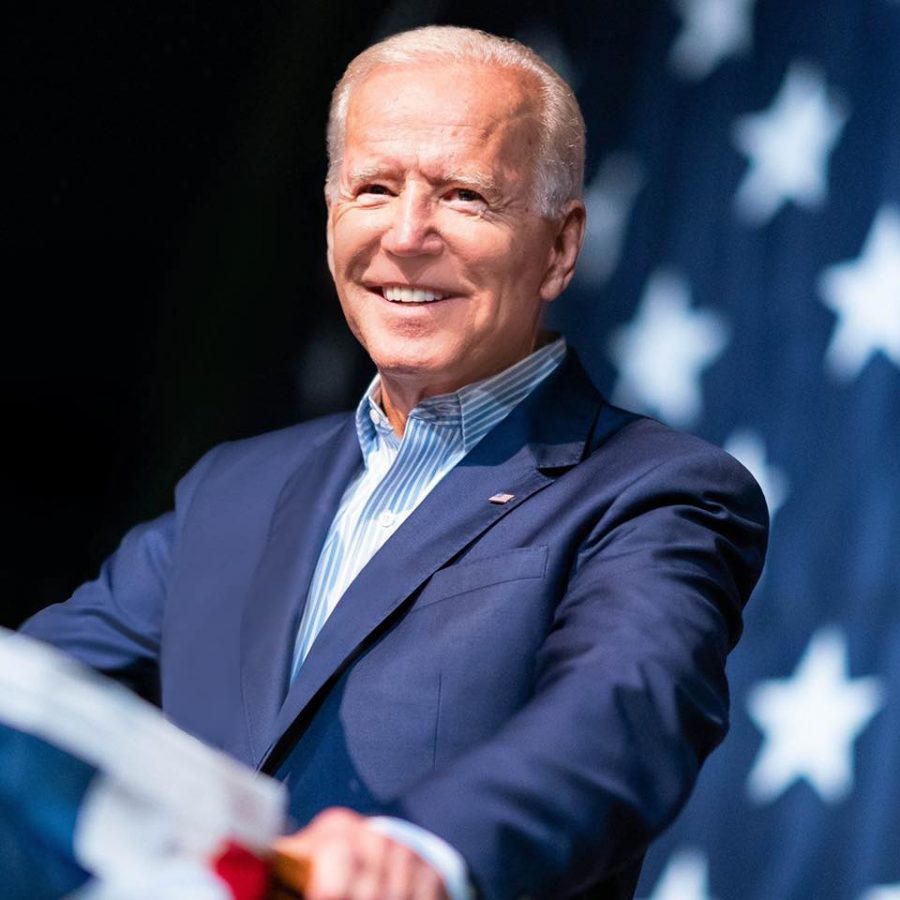News broke the morning of Nov. 7 that former-Vice President Joe Biden would be the 2020 president-elect, beating incumbent President Donald J. Trump by more than 60 electoral college votes and five million popular votes. With a new incoming president comes a flurry of domestic and international issues to be addressed, an area that Trump has left a mess and has no intention of cleaning up before Biden is sworn in on Jan. 20.
Despite an inability to lead his own country, Trump somehow inspired hope halfway across the globe in a country that has long struggled with strong leadership and democracy: Nigeria.
Nigerian support for the lame-duck president goes back to Trump’s best-selling memoir “The Art of the Deal,” which details his upbringing and business advice that can make just about anyone a billionaire, assuming you have a small loan of a million dollars to start. It was no surprise that when the business tycoon was elected to public office that his legion of international support followed.
Trump’s presidency wasn’t much of an adjustment either. Sitting Nigerian President Muhammadu Buhari is 76 to Trump’s 74 and Buhari’s vice president, Yemi Osinbajo, is a Pentecostal pastor to Mike Pence’s born-again evangelical Catholicism. There is a similar economic nationalism, disregard for the law and overt misogyny that put Trump and Buhari on the same wavelength when drafting legislation.
The major difference between Trump’s ability to rule and Buhari’s is when they entered office. Trump began his four years following NASA’s discovery of water on Mars and the legalization of same-sex marriage; in short, the United States was doing pretty well. On the contrary, Buhari was governing a country where nearly one-third of all children have never been enrolled in school and over 43 percent of women between 15-49 are married before their 18th birthday.
So what does a country like Nigeria have to do with the United States of America?
A reputation boost would be the simple answer, but it’s never been that simple. Nigeria is a massive country with over 195 million people and the 26th largest GDP between Belgium and Austria. Ever since Nigeria’s emancipation from the British Empire in 1960, its leaders have been trying to catapult the country onto the world stage with the likes of France, Germany and Brazil. And unlike many other African nations, Nigeria hasn’t extensively fought its neighbors; most of its recent feuds have been with terrorist organizations like Boko Haram and ISIL.
Nigerian support for Trump meant that Buhari could visit the White House and publicly appear with the president, but it also meant ignoring Trump when he disparaged Buhari’s country. In early 2018, Trump referred to Haiti and other African nations as “s—holes.” Opportunistic friends to the president, like Buhari, were silent on the matter. Trump’s list of opportunistic international support goes on, from Indian Prime Minister Narendra Modi to Brazilian President Jair Bolsonaro.
Countries like India and Brazil were eager to connect with Trump because he didn’t care what was happening overseas as long as the U.S. was profiting or spreading Western influence. Brazil and India are nowhere near as financially and politically desperate as Nigeria, but any support from one of the richest nations in the world is bound to go a long way. Just ask Israel.
Israel and the U.S. have been friendly since President Harry S. Truman recognized David Ben-Gurion’s establishment of the Israeli State in 1948. American support in the late 1940s meant that Ben-Gurion would finally have control of the nation-state the Jewish people had been longing for.
Since 1985 Israel has been granted over $142 billion in aid by the U.S., a majority of which goes to its military, often regarded as one of the most powerful in the world. In turn, the U.S. now has over 38 “named” active military bases worldwide, many of which are in the Middle East around Israel, Qatar and Saudi Arabia. But Israel has the United States’ word and if trouble ever arises Israeli people can rest assured that the sitting American president has their back.
Historically, countries have always formed alliances based on their political and ethnic agendas. A raft of Eastern European nations aligned themselves with Nazi Germany because a Third Reich victory meant successes within their own nations. Croatia wanted to eliminate its Serb population and Romania longed for the northern region of Transylvania, so they both hopped on the bandwagon and pledged their allegiance to Adolf Hitler and Nazi Germany.
Money talks and so does military power which is why a friendship with the U.S. is a friendship with money, power and glory. On the world stage, it’s easy to mess up and a partnership with the U.S. acts as a safety net for even the most corrupt of leaders.
The panacea for all of America’s problems is not a new president, but it certainly doesn’t hurt. U.S. alliance with leaders like Buhari, Modi and Bolsonaro must come to a halt until they decide to remedy relations within their own countries. Instead of aligning with countries for the sole purpose of trade deals and military bases, the U.S. can begin promoting international diplomacy in return for American support.
More than 70 million Americans need to be convinced this is a step in the right direction. Under President-elect Biden, I don’t think that will be too hard.
Max Schwartz can be reached at [email protected]. Follow him on Twitter @maxwschwartz.




















